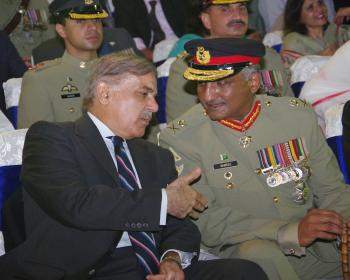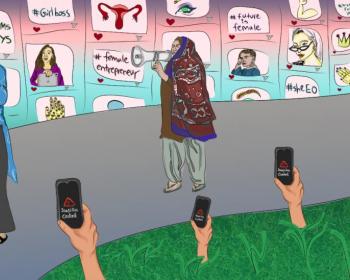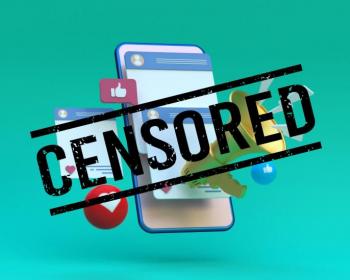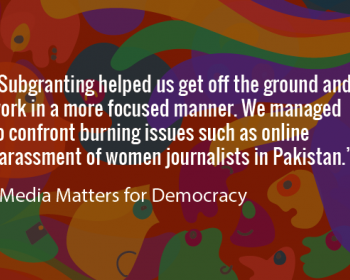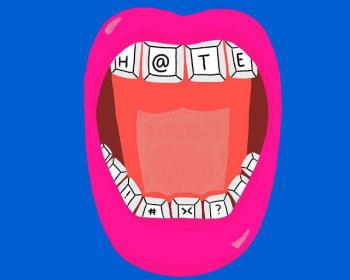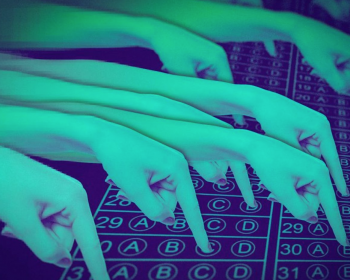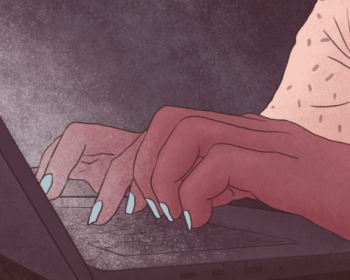Pakistan
After weeks of uncertainty, Pakistan has finally elected a prime minister in an eight-party coalition government. This election was unique in the use and denial of technology, the swift flows of disinformation and the lack of accountability for citizens' digital rights.
The transgender community in Pakistan has constantly been subjected to persecution and violence hindering their participation in "normal" life. This violence has increasingly been mirrored in the digital world, with a plethora of hashtag campaigns aimed at damaging the community's struggles.
This two-part series sheds light on how art and creativity play a key role in activism in Pakistan and provide the country's feminist movement and struggles with a prominent visual aesthetics on the internet.
Shia Muslims are constantly at risk of being targeted with violence online and offline for their religious belief. And when Shia women and queer folks go online, they find themselves at risk of being targeted with abuse from multiple fronts as their two identities combine.
Internet censorship in the name of morality in Pakistan is rampant, and the trend continues to grow as new laws and regulations are introduced. But just a cursory look at this trend reveals that the censorship is not just vague, but also sexist, targeting women's expression and experiences online.
How are APC members improving their communities' lives? In Pakistan, Media Matters for Democracy has been working on media building, fighting censorship and defending women journalists in an increasingly regressive context.
This article, written by Gayatri Khandhadai, APC's Asia policy regional director, is part of Arrow for Change, a publication showcasing various perspectives and voices on the right to freedom of expression.
Media Matters for Democracy stands in solidarity with women journalists who have released a statement highlighting the prevailing trend of continued digital violence from supporters of all political parties and different public and state institutions.
Media Matters for Democracy expresses solidarity with the women journalists who have called out online violence they face on social media platforms. A statement released by a group of women journalists on 12 August highlights a culture of hateful speech, incitement, harassment and doxxing.
Students are facing infrastructural challenges in attending online classes, which are mandatory. The unavailability of quality access to the internet is causing massive challenges for students who are solely dependent on online platforms for education during COVID-19.

Association for Progressive Communications (APC) 2022
Unless otherwise stated, content on the APC website is licensed under Creative Commons Attribution 4.0 International (CC BY 4.0)



